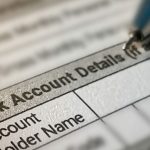Obtaining a mortgage as an expat in the Netherlands can be a complex process, as the requirements and regulations for obtaining a mortgage can vary depending on your citizenship and the type of residence you are looking to purchase. However, with the right preparation and understanding of the process, it is possible for expats to successfully secure a mortgage in the Netherlands.
One of the most important things to consider when applying for a mortgage as an expat in the Netherlands is your income. Most Dutch banks require a steady income and a good credit score, as well as proof of income and assets. The income requirement can vary depending on the bank, but generally you will need to have a gross income of at least €35,000 to €45,000 per year.
 Tip
Tip
Use Hanno’s mortgage calculator to get more insight into your possibilities
Another important factor to consider is the down payment. In the Netherlands, most banks require a down payment of at least 10% to 20% of the purchase price. However, some banks may require a higher down payment for expats, depending on the type of residence and your citizenship. Besides that, making sure you have the most optimal mortgage interest rate is also in your best interest.
Expats in the Netherlands also need to be aware of the different types of mortgages available. The most common type of mortgage in the Netherlands is the National Mortgage Guarantee (NHG) mortgage. This type of mortgage is guaranteed by the Dutch government, which can make it easier to obtain, but it comes with certain limitations, such as a maximum purchase price of €320,000.
Another option for expats is the Non-Resident Mortgage (NRM). This type of mortgage is specifically designed for expats and non-residents who want to purchase a property in the Netherlands. The requirements for this type of mortgage are generally more flexible, but the interest rate may be higher.
In addition, expats should be aware of the tax implications of their mortgage. In the Netherlands, the interest paid on a mortgage is tax-deductible, but it’s important to check with a mortgage advisor to understand the specifics of the tax laws and regulations that apply to your situation.
What you as an Expat should get in order before applying for a mortgage:
- Gather the necessary documentation: Most Dutch banks will require proof of income, assets, and credit score. Make sure you have all the necessary documents, such as your passport, proof of income, and bank statements.
- Check your credit score: Your credit score is an important factor when applying for a mortgage. Make sure your credit score is in good standing and take steps to improve it if necessary.
- Determine your budget: Before you begin the mortgage process, it’s important to determine your budget and how much you can afford to spend on a property.
- Research different types of mortgages: In the Netherlands, the most common type of mortgage is the National Mortgage Guarantee (NHG) mortgage, which is guaranteed by the Dutch government, but there are also Non-Resident Mortgages (NRM) that are available specifically for expats. Make sure to research which type of mortgage would be the best option for your situation.
- Find a good mortgage broker: Working with a mortgage broker who specializes in helping expats can be a great way to navigate the process and increase your chances of getting approved for a mortgage.
- Get pre-approved: Before you start searching for a property, it’s a good idea to get pre-approved for a mortgage. This will give you an idea of how much you can afford to spend and will also make you a more attractive candidate to sellers.
- Understand the tax implications: Be aware of the tax implications of your mortgage. In the Netherlands, the interest paid on a mortgage is tax-deductible, but it’s important to check with a tax advisor to understand the specifics of the tax laws and regulations that apply to your situation.
- Look for properties: Once you have all the necessary documents, a good credit score, pre-approval and you have a good understanding of the tax implications, you can start looking for properties that fit your budget and preferences.
- Apply for a mortgage: Once you have found a property that you would like to purchase, you can apply for a mortgage. Be prepared to provide all the necessary documentation and information to the bank.
- Close the deal: Once your mortgage application is approved, you can proceed to close the deal and purchase your new home in the Netherlands.
This is a general checklist, it’s important to remember that each bank and each mortgage type may have its own set of specific requirements, so it’s best to consult with Hanno, who specializes in mortgages for Expats, to get a better understanding of the process and the specific requirements that apply to your situation.
In conclusion, obtaining a mortgage as an expat in the Netherlands can be a challenging process, but with the right preparation and understanding of the requirements, it is possible to successfully secure a mortgage. It’s important for expats to have a steady income, a good credit score, and to consider the different types of mortgages available in the Netherlands.





Leave a Reply